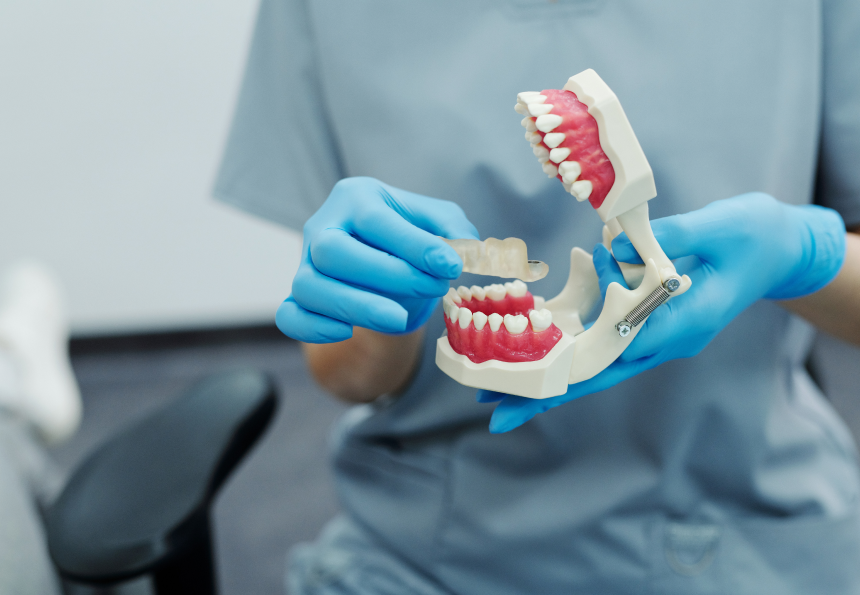What to Expect from Your Very First Visit to a Dentist in Eugene Oregon
What to Expect from Your Very First Visit to a Dentist in Eugene Oregon
Blog Article
Learn More About Constant Dental Issues Your Dental Professional Can Solve
Recognizing frequent oral issues is crucial for maintaining ideal oral wellness. Issues such as cavities, periodontal disease, tooth sensitivity, negative breath, and tooth degeneration are common yet often neglected until they become serious. Routine dental visits and individualized care plans can resolve these issues effectively, ensuring a much healthier and brighter smile.
Cavities
Tooth cavities, additionally known as tooth decays, are a widespread oral wellness problem triggered by the demineralization of tooth enamel due to acid manufacturing from bacterial plaque. This process starts when germs in the mouth metabolize sugars and starches from food, generating acids that erode the enamel. Otherwise dealt with promptly, this disintegration can penetrate deeper right into the tooth, impacting the dentin and at some point the pulp, potentially causing severe discomfort and infection.
The beginning of cavity development commonly present as white spots on the tooth surface area, showing initial demineralization. As the procedure progresses, these spots can turn into brown or black lesions, signifying a lot more extensive decay. Normal oral exams are critical for early discovery, as cavities in their nascent stages can be treated with remineralization strategies, such as fluoride therapies.
As soon as a cavity has created, restorative intervention is necessary. Dental professionals generally remove the corroded section of the tooth and load the dental caries with materials such as composite resin, amalgam, or ceramic. In much more severe cases, a crown or origin canal therapy might be called for. Safety nets, consisting of good oral hygiene methods and dietary modifications, play a crucial role in mitigating the danger of cavities.
Gum Illness
While dental caries stand for a considerable issue for dental health and wellness, another critical issue that demands focus is gum tissue illness. Additionally referred to as gum disease, periodontal illness is an inflammatory condition influencing the cells surrounding and supporting the teeth. It is largely triggered by the buildup of plaque-- a sticky movie of microorganisms that bases on teeth.
Gum tissue disease proceeds through phases, starting with gingivitis, identified by soreness, swelling, and hemorrhaging periodontals (dentist in eugene oregon). If left neglected, gingivitis can escalate to periodontitis, where the internal layer of the gum and bone pull away from the teeth, developing pockets that become infected. Gradually, the contaminants produced by the germs break down the bone and connective tissue that hold teeth in position, potentially leading to missing teeth
Very early detection and therapy are important. Specialist oral cleansings and boosted oral health practices, such as cleaning twice everyday and flossing, can take care of gingivitis. For advanced stages, therapies might consist of scaling and root planing, antibiotics, or even medical treatments.
Regular oral check-ups play a critical duty in protecting against and taking care of gum tissue disease. Dental experts can determine very early indicators and recommend suitable treatments, guaranteeing the upkeep of healthy and balanced gums and total dental health.
Tooth Sensitivity
Tooth level of sensitivity impacts millions of people worldwide, offering an usual yet commonly distressing dental problem. This problem emerges when the enamel, the outer safety layer of the teeth, is jeopardized, revealing the underlying dentin. The dentin contains tiny tubules that lead straight to the oral pulp, where nerves stay. When exposed to stimuli such as hot, cool, sweet, or acidic compounds, these nerves are activated, triggering sharp pain or discomfort.
Numerous elements add to enamel erosion and succeeding tooth level of sensitivity, consisting of hostile cleaning, acidic foods and drinks, periodontal economic downturn, and bruxism (teeth grinding) Furthermore, dental procedures such as teeth whitening can momentarily increase sensitivity.
Poor Breath
An additional prevalent oral worry that impacts individuals' everyday lives is poor breath, clinically called bad breath. Bad breath often stems from inadequate oral hygiene, which allows food particles to remain in the mouth, fostering bacterial growth.

Dental professionals play an important function in detecting and treating bad breath. They can recognize the root reason via a complete evaluation and give tailored recommendations and therapy strategies. Recommendations might involve enhancing oral health techniques, such as normal cleaning and flossing, making use of antibacterial mouthwashes, staying hydrated, and resolving any kind of dental issues. In many cases, a recommendation to a specialist may be required to deal with underlying illness contributing to halitosis. Effective administration of halitosis not only enhances oral health but likewise substantially boosts quality of life.
Dental Cavity

Stopping dental cavity entails a mix of good read review dental hygiene methods and normal oral exams. Brushing teeth a minimum of twice daily with fluoride toothpaste, flossing to remove plaque in between teeth, and limiting the intake of sugary foods and beverages are important preventive procedures. Fluoride treatments, dental sealants, and expert cleanings offered by a dental practitioner can likewise play a considerable function in strengthening enamel and preventing decay.
When tooth decay occurs, very early intervention is vital. Dental practitioners can eliminate decayed tissue and recover the tooth with fillings made from products such as composite material, amalgam, or porcelain. In advanced cases, treatments like crowns, root canals, browse around here or extractions may be required. By attending to dental cavity immediately, dental practitioners assist preserve oral structure and function, ensuring long-lasting dental health.
Conclusion
Addressing typical dental problems such as tooth cavities, gum disease, tooth sensitivity, halitosis, and tooth decay is critical for preserving optimum oral wellness and overall wellness. Dental professionals have the expertise to identify and deal with these problems effectively, making certain tailored look after each person. Normal preventative steps and oral exams are essential in determining and taking care of these worries early, promoting a healthier and extra confident smile over a life time.

Tooth decay, also recognized as dental caries, happens when the enamel, the outer layer of the tooth, is worn down by acids created by microorganisms in the mouth. Brushing teeth at the very least twice daily with fluoride toothpaste, flossing to remove plaque in between teeth, and restricting the consumption of sweet foods and drinks are necessary preventative procedures.Resolving common oral concerns such as cavities, gum tissue illness, tooth level of sensitivity, poor breath, and tooth degeneration is critical for preserving ideal oral wellness and overall well-being.
Report this page